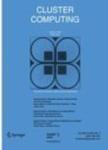版权所有:内蒙古大学图书馆 技术提供:维普资讯• 智图
内蒙古自治区呼和浩特市赛罕区大学西街235号 邮编: 010021

作者机构:Univ Kurdistan Dept Comp Engn & IT Sanandaj Iran Monash Univ Dept Software Syst & Cybersecur Clayton Vic Australia CSIRO Data61 Eveleigh Australia
出 版 物:《CLUSTER COMPUTING-THE JOURNAL OF NETWORKS SOFTWARE TOOLS AND APPLICATIONS》 (Cluster Comput.)
年 卷 期:2025年第28卷第3期
页 面:1-27页
核心收录:
学科分类:07[理学] 0703[理学-化学] 0812[工学-计算机科学与技术(可授工学、理学学位)]
基 金:The authors have not disclosed any funding
主 题:Serverless edge computing Resource autoscaling Request scheduling Reinforcement learning Q-learning Quality of service Resource utilization
摘 要:Integrating serverless and edge computing has revolutionized the deployment of software functions on edge devices with limited resources. Nevertheless, the limitations of computing resources, the dynamic nature of users requests, and the latency constraints of serverless functions present several challenges for achieving operational serverless edge computing. Motivated by these challenges, this paper proposes a self-adaptive approach through joint resource autoscaling and request scheduling in serverless edge computing environments. Our contributions are two-fold: (1) utilizing a Q-learning algorithm with a customized reward function to dynamically scale the number of function instances handling user requests, and (2) employing a heuristic algorithm to select the warmest instance for scheduling requests among active instances. The proposed Q-learning mechanism considers both workload and resource dynamics to determine the optimal number of active instances. Additionally, the heuristic algorithm improves the performance of Q-learning by choosing the warmest function instance for each incoming request, ensuring minimal instance usage. This research aims to achieve a win-win outcome, benefiting both users and providers. Extensive experiments demonstrate that the proposed approach outperforms baseline methods in terms of request success rate, minimizing utilized instances, and reducing cold start occurrences.